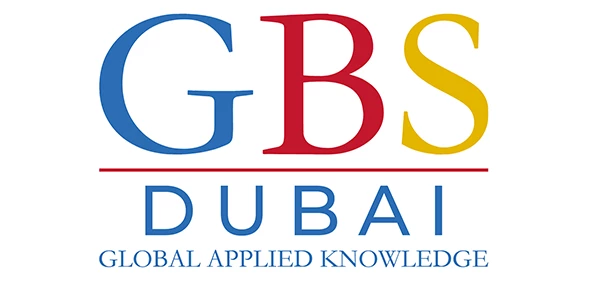Higher education institutions can act as a bridge for students, helping them transition smoothly from education to the workforce by providing them with the skills employers seek. Listed below are some ways institutions can incorporate skills and competencies into the learning experiences they deliver.
1. Provide vocational courses
- Vocational courses offer a practical approach to gaining skills and qualifications, boosting employability.
- There's been a huge expansion in vocational options recently, ranging from basic levels to advanced degrees.
- You can find courses in almost any field, from business to social care, engineering and software development.
- These courses benefit students who have a specific career path in mind and those who prefer hands-on learning over traditional classroom settings.
2. Partnerships with employers
- Education institutions with industry partnerships offer opportunities for collaboration between employers and students.
- These partnerships can involve workshops, digital courses, placements and course materials created by institution faculty and industry professionals.
- They help students learn about the current demands of the workplace.
- Sometimes, courses don't adapt fast enough to meet employer needs. Internships may be lacking. Industry partnerships offer students academic instruction and real-world insights.
3. Offer practical learning opportunities
- Hands-on opportunities, such as lab experiments, work placements and research projects, help students learn by doing.
- These activities offer valuable information and experience for students to reflect on.
- Hands-on activities can be included in almost every course, both on and off campus.
- Excursions to local businesses, temporary placements and volunteer opportunities enhance the hands-on experience for students.
- Participating in these opportunities adds value to a student's resume and can help them answer competency-based interview questions effectively.
4. Educate on data literacy and skills
- Workplaces now rely heavily on digital tools like SaaS programmes, automated systems and conferencing tools.
- Many of these tools are new to students but essential for the future.
- Digital literacy should be part of every curriculum, regardless of whether the course is technical.
- Data literacy skills should be taught in an engaging way, using real-world examples and figures provided by industry partners and avoiding overly technical lectures.
5. Provide internships and apprenticeships
- Work placements, internships and apprenticeships help students gain valuable skills in a real-world setting.
- Students also get a taste of the workplace environment and corporate structure while earning money or contributing to their degree.
- Higher education institutions with active internship and apprenticeship programmes are more attractive to students, with 66% wanting more real-world experience.
- These opportunities provide a great way for students to explore different sectors and roles, build professional networks and gain confidence before leaving higher education.
6. Include skills training in courses
- Employers state that students often lack the skills needed for work, but educational institutions can help by teaching these skills in the curriculum.
- Brainstorming sessions and group work teach teamwork and analytical skills.
- Role-playing assignments and work placements help to build interpersonal and communication skills.
- Teaching these soft skills makes a degree more valuable, as students improve their employability and digital literacy while earning a qualification.
7. Offer resources and workshops
- Students should easily access career information through desktop computers and mobile devices.
- A careers hub should be regularly updated with local job openings, volunteer opportunities, on-campus projects and extracurricular activities.
- Booking a session with a career advisor should be simple.
- Workshops are valuable and can cover topics like CV writing, interviewing and job hunting in detail.
- Workshops also offer a space for students to ask questions and receive personalised advice and feedback.
8. Develop employability skills
- Education institutions should provide a range of upskilling programmes to cater to diverse learning speeds and career aspirations.
- Employability skills can be taught through class activities like breakout sessions and group work.
- Extracurricular clubs can help students develop leadership and problem-solving skills through on-campus projects.
- Working with local businesses offers valuable experience for students.
- Education institutions should establish methods to assess employability skill development, such as digital quizzes, role-play scenarios, or client-facing positions.
9. Create career paths
- A good career development plan helps students explore job opportunities and supports them throughout their academic and professional journey.
- These plans should be personalised for each student and include opportunities to speak with a career advisor for feedback.
- Some institutions involve local businesses in developing career pathways.
10. Establish a global engagement strategy
- Dr Vicky Lewis, a consultancy advisor, discovered in her 2020 research project that some higher education institutions still rely on global league table rankings for performance assessment. However, this approach is inadequate as educational institutions adapt to life after lockdown.
- Education institution strategies have changed, with a greater emphasis on international collaboration and values-based approaches.
- These aspects are seen as more insightful measures of success, helping students succeed in today's fast-changing workplaces.
- Higher education institutions should prioritise internationalisation, digital accessibility and transnational education in their engagement strategies.
Prepare students for employment with GBS Dubai

GBS Dubai is one of the well-known higher education institutions known for its industry-specific courses in fields such as accounting, healthcare, education and more. GBS has partnerships with top higher education providers and is dedicated to its mission of “changing lives through education”.
Students who enrol in courses at GBS Dubai gain qualifications that hold international recognition. In the UAE, GBS Dubai is approved by the Knowledge and Human Development Authority (KHDA), ensuring that all academic qualifications are certified by KHDA and acknowledged by both public and private institutions in Dubai.
Want to know more? Contact the student support team.



